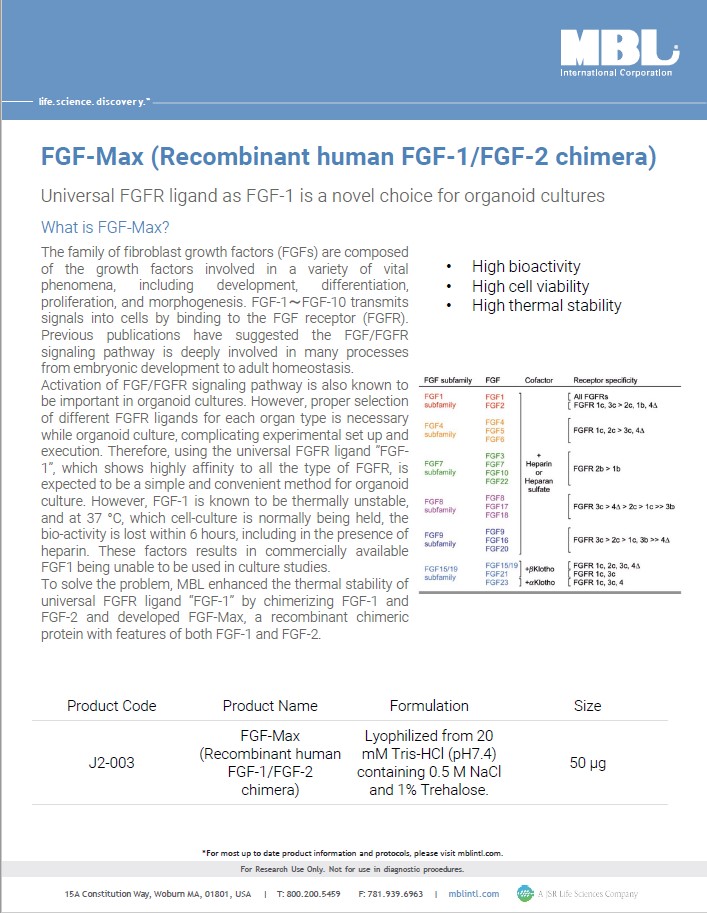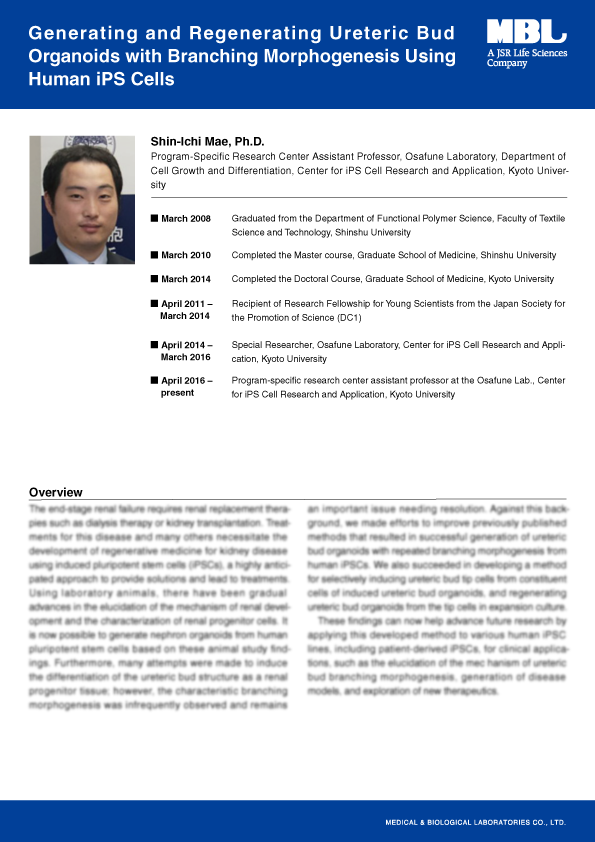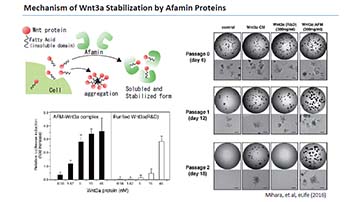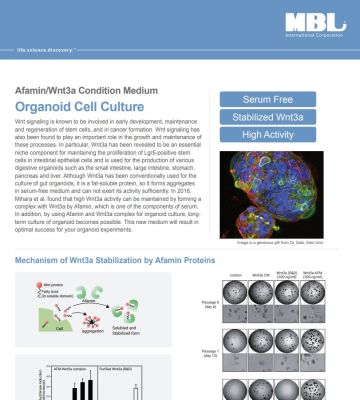Afamin/Wnt3a CM (Conditioned Medium)
Serum free conditioned medium including Wnt3a-Afamin complex for intestinal organoid cell culture.
Note Regarding Intellectual Property Rights:
When culturing organoids, or stem cells, or other tissues, if you are to use this product in combination with other factor or factors (hereunder factors), a third party may have a patent on the use or other application of the factors concerned. Regarding to this product, we do not offer any non-infringement warranty when used or otherwise applied in combination with other factors. Therefore, if you intend to use this product in combination with other factors, please check with your organization’s division responsible for intellectual property rights or your research agency before using this product.
Conditioned medium containing Wnt3a protein and Afamin protein.
The mouse Wnt3a and the human Afamin were co-expressed in Expi293F™ Cells*. For the co-expression of Wnt3a and Afamin, expression plasmids for N-terminal PA tagged mouse wnt3a and N-terminal TARGET tagged human afamin were co-transfected using the Expi293 Expression System*. Conditioned medium was prepared using serum-free media (Advanced DMEM/F-12* containing streptomycin, HEPES and GlutaMAXTM Supplement*). Then, it was sterilized by filtration of 0.2 µm-filter. FBS was used for pre-culture of Afamin/Wnt3a expression Expi293F™ Cells. *: Thermo Fisher Scientific’s products.
DIRECTION for USE:
As a canonical Wnt signal agonist. For intestinal organoids culture, add to the culture media at a final concentration of 10%. Since the optimal condition may vary depending on samples, each user should determine the optimal volume of addition in advance.
Formerly Product Code: J-ORMW301R
| Product Type | Cell Culture |
|---|---|
| Application | Cell Culture |
| Species Reactivity | Human, Mouse |
| Research Area | Organoid |
| Description/Background | Wnt signaling is known to be involved in early development, maintenance and regeneration of stem cells, and in cancer formation. Wnt signaling has also been found to play an important role in the growth and maintenance of these processes. In particular, Wnt3a has been revealed to be an essential niche component for maintaining the proliferation of Lgr5-positive stem cells in intestinal epithelial cells and is used for the production of various digestive organoids such as the small intestine, large intestine, stomach, pancreas and liver. Although Wnt3a has been conventionally used for the culture of gut organoids, it is a fat-soluble protein, so it forms aggregates in serum-free medium and can not exert its activity sufficiently. In 2016, Mihara et al. found that high Wnt3a activity can be maintained by forming a complex with Wnt3a by Afamin, which is one of the components of serum. In addition, by using Afamin and Wnt3a complex for organoid culture, long-term culture of organoid becomes possible. This new medium will result in optimal success for your organoid experiments. |
| Storage Temperature | Store at -20°C or below. The expiration date is indicated on the bottle label. Please prepare appropriate aliquots to avoid repeated freezing and thawing. |
| Protocols | Cell Culture |
| Endotoxin levels | < 1.0 EU/mL by the LAL assay |
| Regulatory Statement | For Research Use Only. Not for use in diagnostic procedures. |










